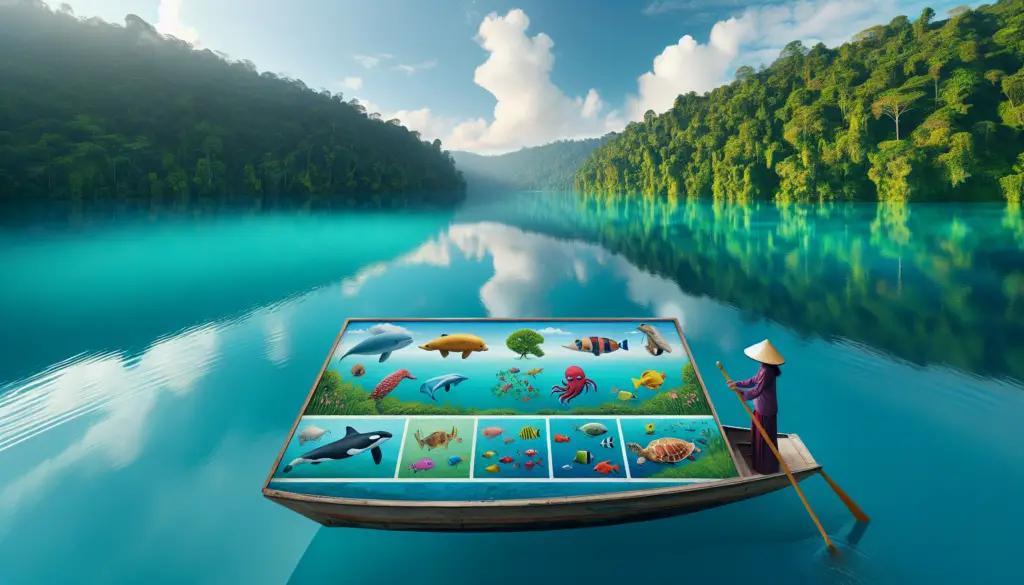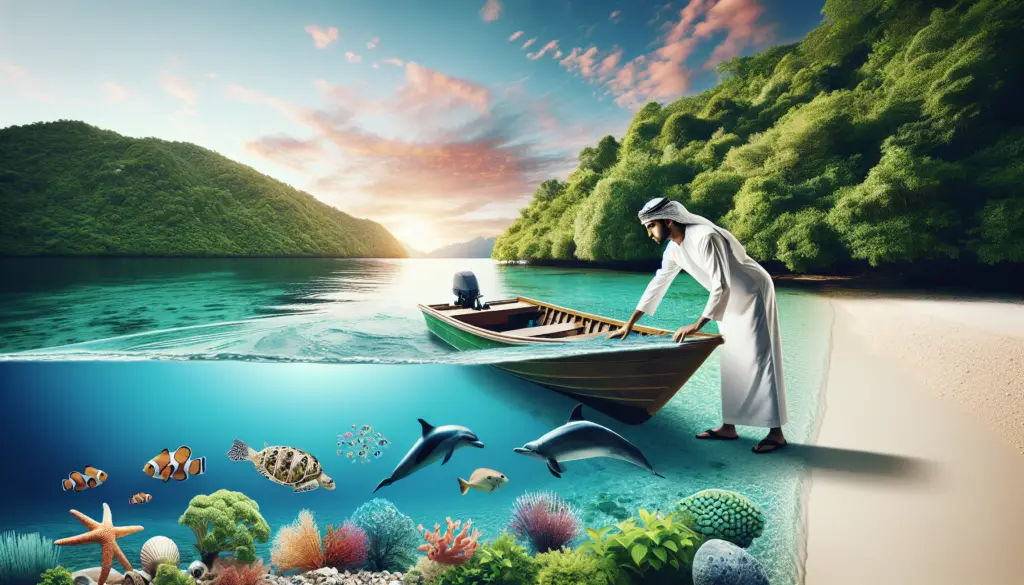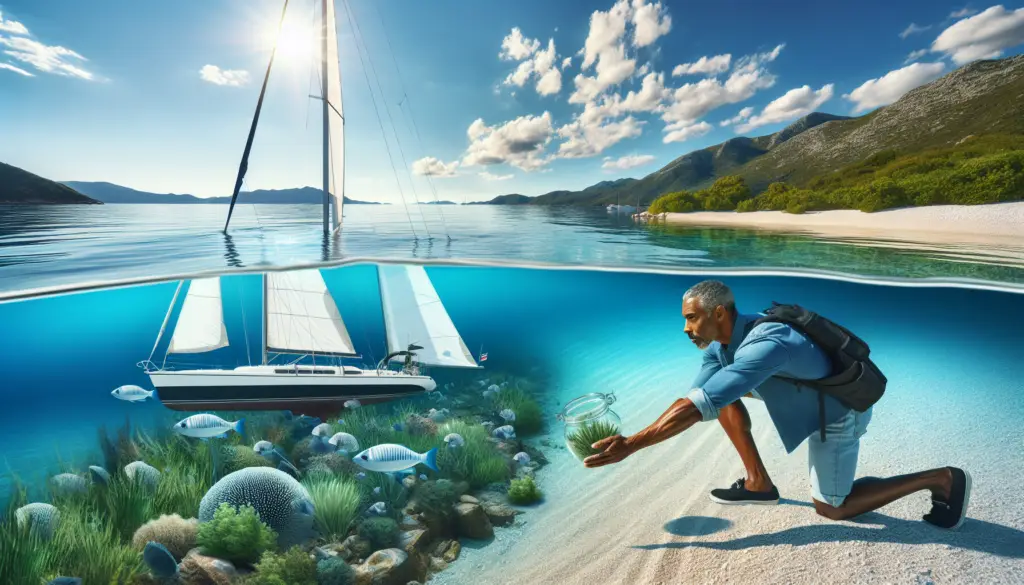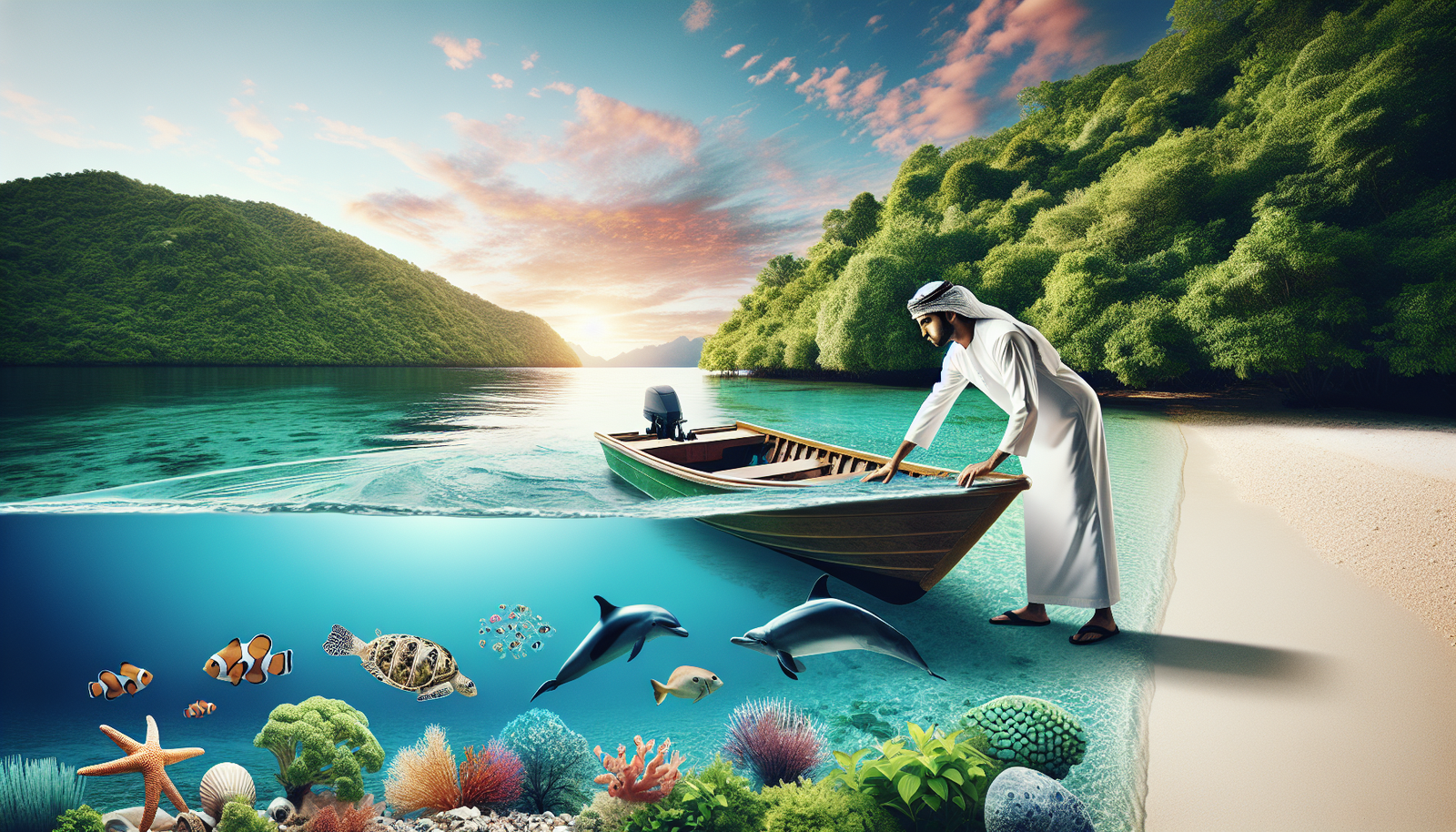If you’re a boater, your love for the water might be matched by your respect for the environment. In “The Importance Of Environmental Education For Boaters”, you’ll find out how broadening your knowledge on conservation can influence your boating practices in a positive way. As boaters, understanding the ecological dynamics, the flora and fauna of the waterways, and the best methods for reducing environmental impact, can enhance not only your experience but also contribute to the preservation of the water bodies you love.

Understanding Environmental Boating Regulations
Boating is an activity enjoyed by many, but it is essential to remember that it is subject to various regulations in order to protect the environment. Staying informed about these regulations can help you prevent inadvertent environmental harm and penalties.
Federal laws and regulations
On federal level, there are numerous laws and regulations that govern boating practices. These range from national standards for boat construction to navigation rules and regulations aimed at preventing collisions and ensuring a safe and benign marine environment.
State laws and regulations
In addition to federal laws, each state in the U.S. also has its own set of boating laws. These regulations can vary widely from one state to the next, so it’s important to familiarize yourself with the specific laws that apply in the area where you plan to take your boat.
Local laws and regulations
Last but not least, local county or city ordinances also come into play. These may include special speed and noise restrictions, boating zone regulations, and measures to protect local marine life and ecosystems.
Impacts of Boating on Environment
Boats can, unfortunately, have a significant impact on the environment. Here are some ways in which boating can affect the marine environment:
Impact on marine life
Boats can disturb marine life in various ways. For example, motor boats churning through water can harm fish and other creatures that live in or near the water. Rapid boats passing close to marine mammals can also cause unnecessary distress.
Water pollution caused by boats
Boat engines can discharge potentially harmful pollutants into the water, from toxic heavy metals to oil and fuel. Certain practices such as dumping or cleaning boat waste in the water can contribute to pollution as well.
Noise pollution caused by motor boats
Noisy motor boats can disrupt the serene soundscape of the water, causing stress to both marine life and human inhabitants along the shorelines.
Physical damage to shoreline and underwater habitats
Boats can also cause physical damage to underwater habitats and the shoreline. Anchors can destroy corals and seagrass beds, while propellers can stir up sediment, smothering seafloor dwellers.

Sustainable Boating Practices
Despite the potential harm, there are many steps you can take to ensure you’re boating responsibly and sustainably.
Use of eco-friendly boat equipment and materials
Firstly, consider using eco-friendly boat equipment and materials. This includes both the construction of your boat and its maintenance.
Efficient fuel use
Reducing your boat’s fuel consumption is another way to lessen your environmental footprint. This can be achieved by maintaining a moderate speed, keeping your engine well-tuned, and avoiding unnecessary trips.
Proper waste disposal
Dispose of all waste properly – whether it’s trash, sewage, or fishing lines. Never discard these into the water.
Respect for marine wildlife
Lastly, always show respect for marine wildlife. Maintain a safe distance from marine animals and don’t disturb their habitats.
Impact of Climate Change on Boating
Climate change affects more than just our land – it also has serious implications on our oceans and boating.
Effects of rising sea levels
Rising sea levels can cause flooding and erosion of marinas and harbors, making it more difficult and dangerous to boat.
Changes in sea and weather patterns
Changes in sea and weather patterns can lead to unpredictable sailing conditions, putting boaters at risk.
Impact on marine biodiversity
Climate change also endangers marine biodiversity. With rising sea temperatures and acidification, many species face threats to their survival, making it critical for boaters to minimize harm.

Responsibilities of Boaters for Environmental Preservation
Preserving our marine environments is a shared responsibility. Here are some ways boaters can contribute.
Awareness of environmental impact
Understanding and acknowledging the environmental impact of boating is the first step towards responsible action.
Adoption of sustainable practices
Adopting sustainable practices, as mentioned earlier, is crucial in reducing boating’s environmental footprint.
Role in protecting marine biodiversity
Boaters can play an active role in safeguarding marine biodiversity by respecting marine life and avoiding damage to habitats.
Involvement in clean-up and preservation campaigns
Joining clean-up drives and preservation campaigns is an excellent way for boaters to contribute to the cause.
Benefits of Environmental Education for Boaters
Environmental education offers numerous benefits for boaters.
Increased awareness and knowledge
Boaters who undergo environmental education become more aware and knowledgeable about the ecosystems they interact with, making them better able to protect those environments.
Enhanced navigation skills
Such education also enhances navigation skills, including safety and efficiency, and helps prevent unintentional environmental damage.
Greater environmental responsibility
Environmental education also instills a greater sense of responsibility, leading boaters to adopt more sustainable practices.
Improved boating experience
Ultimately, a cleaner, healthier marine environment benefits everyone and leads to a better boating experience.

Educational Programs and Resources for Boaters
Many resources and programs can help enhance your environmental knowledge and boating practices.
Boating safety courses
Safety courses cover crucial subjects such as navigation rules and emergency procedures, also emphasizing the importance of respecting and protecting the marine environment.
Environmental education programs
Specialized environmental education programs can give you a deep understanding of marine ecosystems and their conservation needs.
Online resources for boating environmental education
Numerous online resources, from ebooks to webinars, provide convenient access to environmental education for boaters.
Community boating groups and clubs
Joining community boating groups and clubs can get you involved in local conservation efforts and offer opportunities for hands-on learning.
Case Studies of Successful Environmental Education Programs for Boaters
Over the years, many successful education programs have demonstrated the positive impacts of environmental education for boaters.
Local community-based initiatives
Many community-based initiatives have been instrumental in preserving local marine habitats and inspiring boaters to adopt sustainable practices.
National and international programs
On bigger scales, national and international programs have spread awareness and propelled policy changes to minimize boating’s environmental impact.
Online and in-person courses
Both online and in-person courses have bridged gaps in knowledge, ensuring that boaters of all levels can access vital information.
Impact assessment of programs
Assessments show that these programs significantly enhance participants’ environmental awareness, decision-making, and behavioral changes.
Charting the Future: Next Steps in Environmental Education for Boaters
As we look into the future, there’s much to anticipate about environmental education for boaters.
Emerging trends in boating environmental education
Innovative trends, such as virtual reality and gamification, are making environmental education more engaging and effective than ever.
Advancements in sustainable boating technology
Technological advancements, like solar power and emissions-free engines, will impact boating practices and education.
Policy recommendations for enhancing boater environmental education
Policies favoring mandatory environmental education for boaters can drive widespread awareness and change.
Role of Various Stakeholders in Fostering Environmental Education among Boaters
Environmental education for boaters is a collective effort, encompassing various stakeholders.
Role of local governments and authorities
Governments can set regulations, fund environmental education programs, and enforce laws that protect marine environments.
Role of NGOs and environmental activists
NGOs can conduct research, create educational resources, and advocate for marine conservation.
Role of boating industry
The boating industry can drive change by introducing eco-friendly products and encouraging sustainable practices among customers.
Role of individual boaters and boating communities
Of course, the role of individual boaters and communities is fundamental. Their enthusiasm for learning, commitment to sustainability, and involvement in preservation initiatives are at the heart of protecting our precious marine environments.


[…] education and sharing knowledge about sustainable boating practices can help others reduce their boating carbon footprint. […]
[…] and international organizations offer specialized training programs to prepare disaster responders for boating in emergency situations. Such programs train responders […]